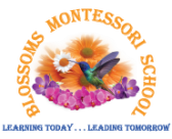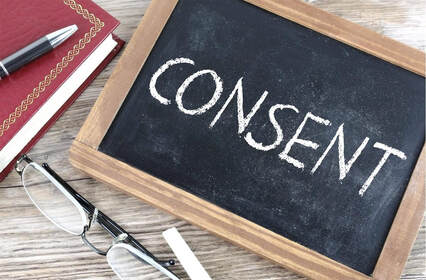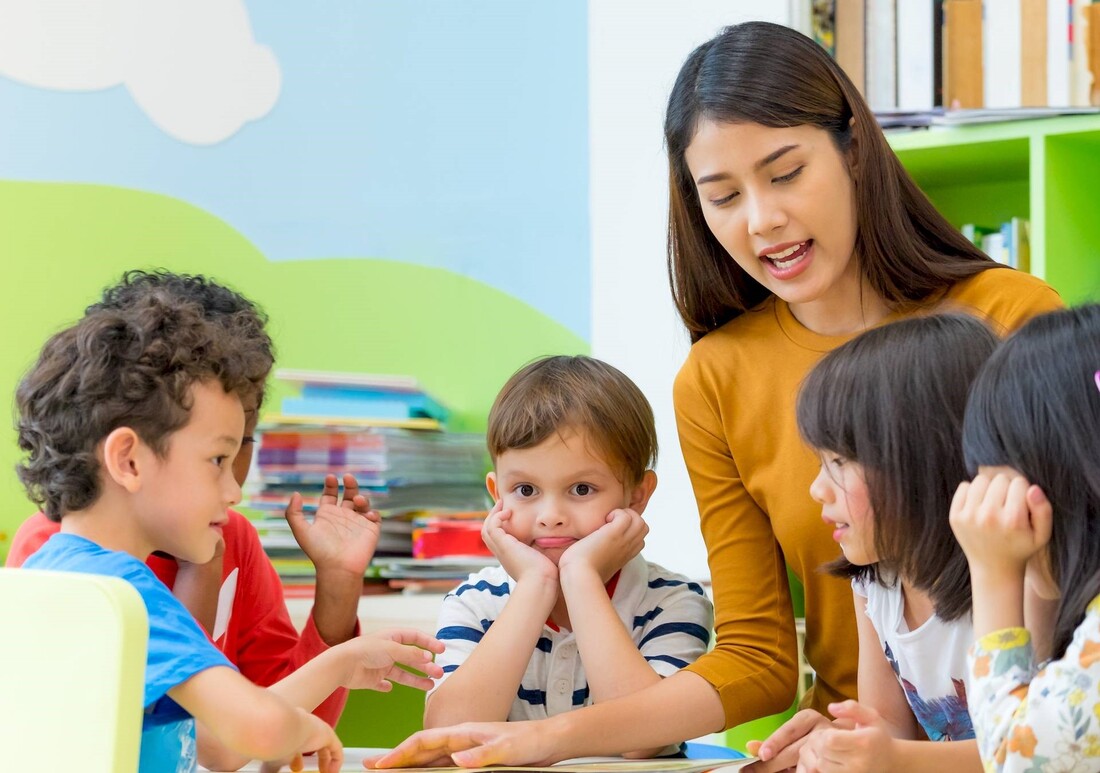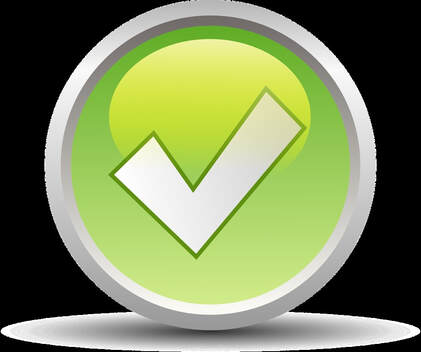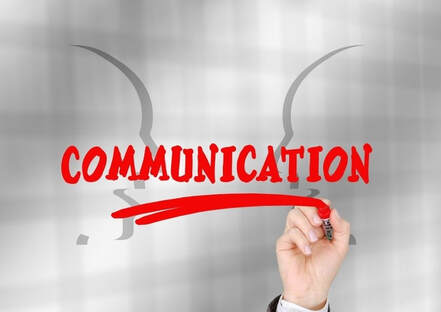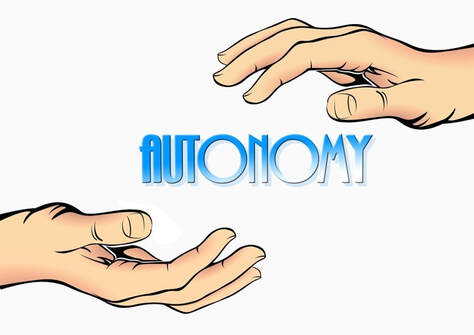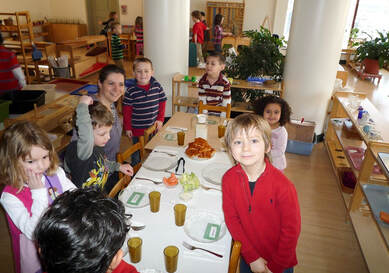|
What is consent? Depending on nature, consent basically refers to permission and choice, where the subject initiates and decides on her/his level what is good for him /her. It is basically an acceptance sign towards interventions, activities, behaviors or any kind of implementation based on behavior or learning. Everyone has a right to know what is being implemented or chosen for them, no matter where they are. It has no age, gender or any specification limits. Every person of every age has a right to it. If a basic issue, like if the person we are talking about is not mature enough, arises then we go with his/her very trusty attendant, that mostly are parents. From a Montessori perspective, consent is very important as the complete personality of the child that will develop in Montessori will be there with them all along their life. Consent and Montessori perspective for Parents Everything, including all factors, environment, freedom, content, and techniques the teachers will be implementing in Montessori, must be shared with the parents. The parents should permit all the rules and methods before they are on implemented. Consent and Montessori perspective for Children A child on a Montessori level or daycare totally relies on others, and if we go with research and perspective, all scholars state that the first years of every person's life have a lot of importance. Things taught here and behaviors implemented in Montessori will be part of a child's personality forever. This is why it is very important for both parents and teachers to tell the child their opinion matters and how to say no to anything they do not want to do.
Consent always starts at home, and the parents can implement it by offering the child choices or asking them questions. You can ask the child if they want a snack or provide options and ask them to choose from a few options what they would like to have for a snack. This can be practiced where ever possible. Things might get frustrating when the child says no to important tasks like putting on shoes, eating food etc. But both teachers and parents need to stay calm and accept and explain why performing the task now is important, and the child should only do it with his/her consent. This is when the child needs to be persuaded and not forced so that they know that their consent matters.
0 Comments
What are Mix-Aged Class Rooms?
Now when everything is of progressing nature, educational systems are also being reconsidered to ensure positive and advanced results worldwide. There are many Montessori schools and classroom setups working around with new and more activities and a wider range of strategies just to ensure the learning will last longer. Major Including When We Go with Mixed-Age Classrooms Criteria In Montessori Montessori uses mixed-aged classrooms because, in mixed-aged classrooms, the children learn many different ways to attempt the same task, as we have a variety of ideas and solutions depending on different age groups. Students then learn through observation, practice, and teaching. Having around different age groups initiates a person's urge to stop and observe. How do Mix Aged Classrooms work? There are fewer chances to grow while staying in the same class with the same age group and same set up minds for years and years. It also does not call for creativity too. Older students age out of the program, and new ones are introduced, but the continuity of the classroom more or less remains the same. Depending on this consistency, confidence is initiated. Older children work like leaders and initiate their roles with positivity and cheer and that delight factor maintains a positive environment. Children who are last born in their family work as leaders in Montessori, and being an elder and responsible one states a condition of excitement in them. In a mixed-age classroom, children in natural work atmosphere work on their own with fewer restrictions and more creativity encouraged, which strengthens their personality. Observation is the key to learning, and learning based on self-observation leaves an impression with change. Secondly, it calls for practicing the difference of ideas and support. Along with this, a try to advance the skill in competition with the better one helps them to step up. Third, teaching works as a role model, and older students deepen their own understanding of the lesson. Mix Aged Class Rooms and instructors The teachers their work with them, help them, guide them, and ensure a feeling of security. There they are taught how to deal with a variety of ideas and opportunities when you have a variety of age groups and, of course, expertise available. As time moves on, he or she will have the chance to observe children writing and reading and will want to work on mastering their sounds so that they, too, can write and read. That is why mixed-age classrooms are used, it invites a new atmosphere, and at the same time, it is helpful for the teacher too. Maria Montessori developed the Montessori methods to raise children in a better way and help parents develop habits that will be beneficial for them in the long run. If you have children that are attending Montessori, you need to develop the following habits.
You need to know that Montessori classrooms are inclusive of all ages, and you need to accept the decorum of the classroom. Some parents can be apprehensive but let me tell you that it could be the best thing that happens to your children. The reasoning is that children learn to model, and to watch older children do things makes your younger one develops those skills as well. Older children also use leadership and communication skills which can be helpful in your child’s growth.
Communication is very important, especially if you have a child attending Montessori. However, effective communication requires a few skills which you need to master. First, develop a habit of always communicating with your child at an eye level. If you want to say something to your child with authority, you need to bend down on your knees and then state what it is you want him to do. A child having to look up to you to communicate while you are standing can never be an effective communication technique. Always talk to your children by lowering yourself down to their eye level.
You need to observe your child for a few minutes during the day as it can be the most effective habit for a parent to develop. You do not have to intervene with your child as you just need to observe him/her, observe the routine, and get an idea of how to deal with the child. Once you start doing it during the day, you will realize it can be one of the most insightful techniques for you as a parent.
Your child's autonomy or freedom should never be compromised. You need to learn how to give your child freedom within limits. Set boundaries and see what your child needs the most, and then give him autonomy to reach out for his goals and help him become a useful member of society.
We understand that a huge responsibility lies on the parents but believe in yourself, and you will get there. Montessori daycares these days have some of the best techniques to offer your children a bright future. You can go around your neighborhood and look for Montessori preschool, which gives your children a way to live a successful and independent life.
However, there are some people who are still confused about the terms used in Montessori childcare. We have made it easier for you to understand Montessori daycare by providing a list of a few terms commonly used in a Montessori preschool. 1. Planes of Development There are four development planes in childhood, each remaining for six years. These planes are distinct from each other, and a child's needs are different in each plane of development. 2. Control of Error A child somehow assesses his own progress in different activities in the Montessori daycare. Control of error is the way of providing instant feedback to the child. It protects a child's self-esteem by giving control in the hands of the learner. 3. Absorbent Mind A child from birth to six years is known to have an absorbent mind. An absorbent mind is able to absorb knowledge easily and effortlessly. 4. Independence Different developmental milestones, including talking, walking, and weaning, help the child achieve autonomy, self-regulation and individuation. Independence means not depending on another, and it is a vast term in meaning. 5. Sensitive Periods Sensitive periods are the time intervals where a child is drawn to a certain skill. In this duration of time, children learn relatively easily and with joy. It takes much more effort to teach the child than sensitive periods. 6. Practical Life Practical life activities in a Montessori daycare resemble work of the home, including brushing teeth, getting dressed and cooking. These activities teach the child to be independent in his coming life. 7. Prepared Environment In a Montessori daycare, the classroom is an environment prepared by adult teachers for children. A prepared environment has attributes like simplicity, order, beauty and reality. Everything is provided at child size to give the children a sense of independent functioning. A group of children child with a trained adult is an essential part of a prepared environment. 8. Sensorial Material A child develops clear ideas of abstraction using sensorial material, and it is provided in different colors, sizes and shapes. Children can create and organize their intelligence using this sensorial material. 9. Socialization Socialization is a child's learning to interact effectively with a social group. Verbal and non-verbal communications both are part of the socialization process. |
Blogs
Author
As a highly experienced Montessori educator with a coveted AMI credential from Association Montessori International, I have spent over 22 years helping children discover their full potential through an individualized approach to learning. Along the way, I have mentored and coached countless educators, equipping them with the tools and techniques to foster growth in their own students. In fact, I have trained over 65 teachers to date. Currently serving as a Director, I bring a wealth of knowledge and expertise to every aspect of my work. Whether you are a parent seeking the best educational opportunities for your child or an educator looking to improve your own practice, I am confident that I can help you unlock your full potential. Archives
June 2024
|
Contact Us
|
|
| Child Care Learning Center | Daycare Center |
Blossoms Montessori School All Rights Reserved.
